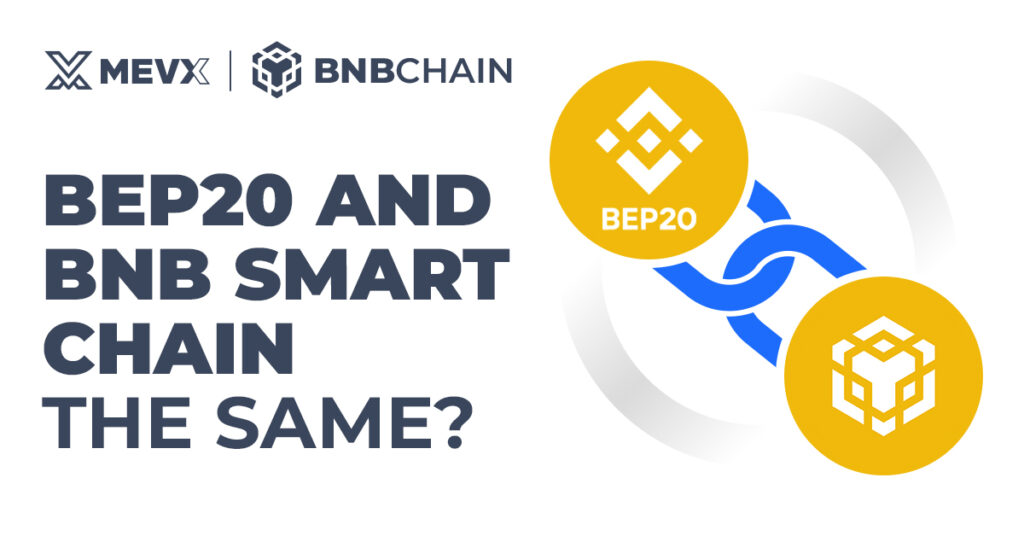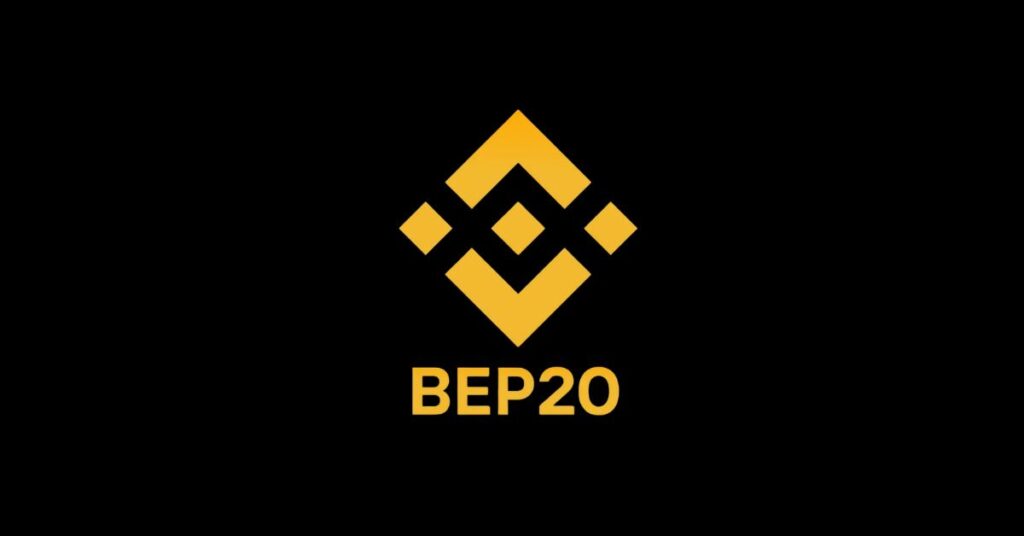BEP20 and BNB Smart Chain often get thrown around interchangeably, leading many beginners to wonder: Are BEP20 and BNB Smart Chain the same? The short answer is no. This article will break it down step by step, exploring what each is, their similarities, key differences, and why the mix-up happens so frequently.

What is BNB Smart Chain?
BNB Smart Chain, often abbreviated as BSC, is a blockchain network launched by Binance in 2020. It’s designed to be a high-performance alternative to Ethereum, offering faster transactions and lower fees while maintaining compatibility with Ethereum’s tools and smart contracts.
What is BEP20?
BEP20 isn’t a blockchain; it’s a token standard. Think of it like a set of rules or a blueprint for creating and managing fungible tokens on the BNB Smart Chain. BEP20 is Binance’s equivalent to Ethereum’s ERC20 standard, defining how tokens should behave in terms of transfers, balances, approvals, and more.
See also What are BEP-2 and BEP-20 Tokens?
Are BEP20 and BNB Smart Chain the Same? Key Differences
To directly address the question, are BEP20 and BNB Smart Chain the same? The answer is a firm no. Here’s why:

- Nature and Function: BNB Smart Chain is the underlying blockchain infrastructure, like the highway. BEP20 is the vehicle standard for tokens traveling on that highway. Without BSC, BEP20 tokens wouldn’t have a network to operate on.
- Scope: BSC supports multiple standards, including BEP721 for NFTs and BEP1155 for multi-tokens. BEP20 is just one protocol within it, focused on fungible assets.
- Addresses and Compatibility: BEP20 tokens use addresses starting with “0x,” similar to Ethereum, and require the BSC network for transactions. Mixing them up could lead to lost funds. If you send a BEP20 token to an incompatible network like Ethereum, it’s gone.
That said, they’re deeply intertwined. All BEP20 tokens run exclusively on BNB Smart Chain (or compatible forks), so in practice, when you select “BEP20” in a wallet like MetaMask or Trust Wallet, you’re essentially choosing the BSC network for that token type.
Why the Confusion Exists
The overlap is understandable. In user interfaces on exchanges or wallets, “BEP20” is often listed as a network option alongside others like ERC20 or TRC20. This shorthand implies “BEP20 on BSC,” blurring the lines. Plus, Binance’s branding evolution, from Binance Smart Chain to BNB Smart Chain, has added layers of terminology.
Historically, Binance Chain used BEP2, an older standard for its beacon chain. When BSC introduced BEP20 for smart contracts, the shift confused many. Forums like Reddit and X (formerly Twitter) are full of threads asking, “Is BEP20 and BNB Smart Chain the same?” with users sharing stories of mistaken transfers.
Similarities Between BEP20 and BNB Smart Chain
Despite the differences, there are strong connections:
- Ecosystem Integration: BEP20 is tailored for BSC, inheriting its speed and low costs (gas fees often under $0.01).
- Ethereum Roots: Both draw from Ethereum, BSC is EVM-compatible, and BEP20 mirrors ERC20, allowing easy cross-chain bridges.
- Use Cases: They’re both geared toward DeFi, yield farming, and token economies, making BSC a hub for BEP20 projects.
In summary, while BEP20 and BNB Smart Chain are not the same, one’s a standard, the other’s a blockchain, they work hand-in-hand to power Binance’s vibrant crypto world.
Clarifying this distinction helps you navigate the space more confidently. Whether you’re trading, staking, or building, knowing the basics ensures smoother experiences.
For more crypto insights, check out our guides on ERC20 vs. BEP20 or the best BSC wallets on the MevX blog.
Share on Social Media:
